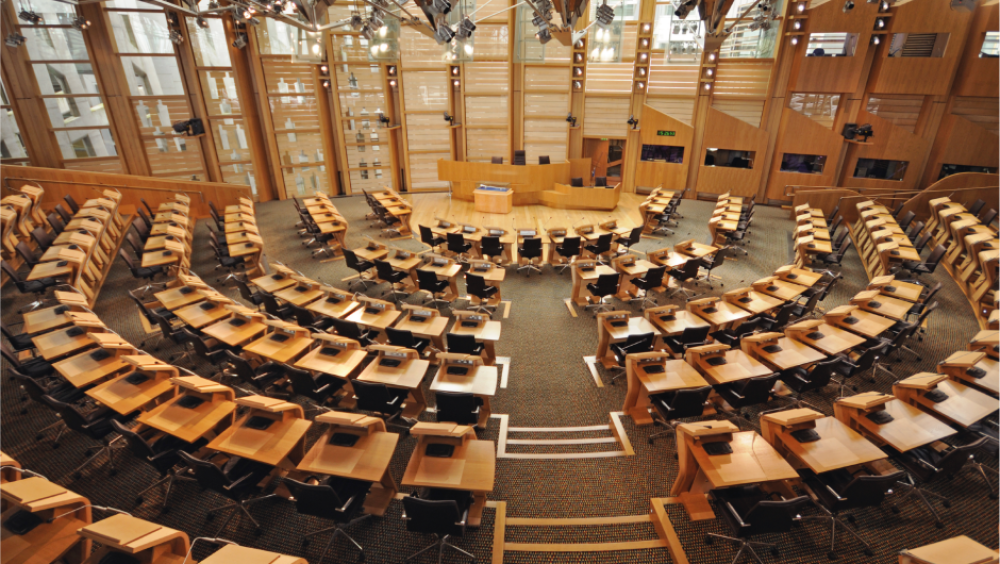Holyrood update
20 Jul 2018

While Westminster has put everything other than Brexit drama on the back-burner, regional governments have been quietly getting on with other things.
In Scotland, there are some great plans are afoot in the fields of digital, data and skills. However, there are renewed calls to overcome infrastructure issues in rural areas. Read on to hear about the happenings in Holyrood.
The Scottish Government has announced £10 million investment in their Flexible Workforce Development Fund.
The fund, which mitigates the cost of the UK Government’s apprenticeship levy, will allow companies who would pay the levy to access 1 and 2-year courses for employees to reskill or upskill.
The government says the fund will “ensure [the] workforce has the skills and training required to meet the changing needs of employers and the Scottish economy” and "support the upskilling and reskilling needs of our existing workforce”.
Another recent development is the announcement of Scotland’s National Performance Network, which seeks to examine and promote Scotland’s place in the digital world.
With this new perspective, Director General of the Scottish Government, Sarah Anderson, has claimed that Scotland can take a world-leading role in tech with women at the forefront.
World-class universities with strong research capabilities; investment in skills and; importantly, the quality of datasets make Scotland an excellent place to base tech-sector businesses.
The Scottish government have made diversity a cornerstone of this strategy. Not only is it the right thing to do socially, but research has shown that recruiting talent from as diverse a pool as possible brings economic benefits too. In short, when products and services are developed by a more diverse group, they appeal to a more diverse audience.
On a related note, PWC’s economic forecasting research has suggested that the development of AI will create more jobs in Scotland than they replace.
The research claimed that, while 544,000 jobs will be lost due to automation, 558,000 jobs will be created - a net gain of 14,000.
The report also predicts that Scotland will lag behind in growth by 0.3% over the next year. Nonetheless, growth fuelled by the expansion of AI technology could be a key driver of the Scottish economy in 10-20 years.
Given the desire for the development of the Scottish tech sector, it is surprising that Citizens Advice Scotland (CAS) has found that half of SMEs in rural areas are STILL suffering from lack of good internet connections.
Extraordinarily, in 2018, some areas in Scotland have such poor internet connection that many are unable to conduct their business properly. Half of those in rural areas (and a third in the whole of Scotland) reported to rely on the postal service over the internet because of poor connection.
There has been a shocking display of hot potato between Holyrood and Westminster, with both claiming that responsibility to remedy the situation lies with the other. Meanwhile, rural communities continue to lose out on opportunities as governments neglect to provide basic infrastructure for their citizens.
Needless to say, the DMA will be pushing for faster rollout of superfast broadband, as this is a fundamental necessity for modern business and, if we’re honest, not something that should have to be fought for in this day and age.
In other news, following the revelations of Vote Leave’s breaking of campaign laws, Scottish Brexit Secretary, Michael Russel, has said a second referendum on EU membership is now ‘essential’.
The campaign has been found guilty of collusion with another campaign, overspending, and failing to adequately account for money spent on the campaign.
The Electoral Commission – the independent body that adjudicates over the effectiveness and quality of British democracy – has unanimously agreed on the findings. However, they have no power to enforce a rerun or do much other than issue a fine and refer the case to the police.
SNP MP Chris Law called for parliament to conduct a formal investigation into the campaign and assess whether a second referendum is necessary in light of the information. Prospects of Parliament doing this? Unlikely.
So, that’s a wee roundup of what’s happening in bonnie Scotland. As ever, DMA Scotland is here to answer any questions or comments about what’s happening in the world of politics and policy.
See anything in Scotland you think the DMA should be involved in? Contact Lisa McLauchlan (Lisa.McLauchlan@dma.org.uk) or Michael Sturrock (michael.sturrock@dma.org.uk).
Please login to comment.
Comments